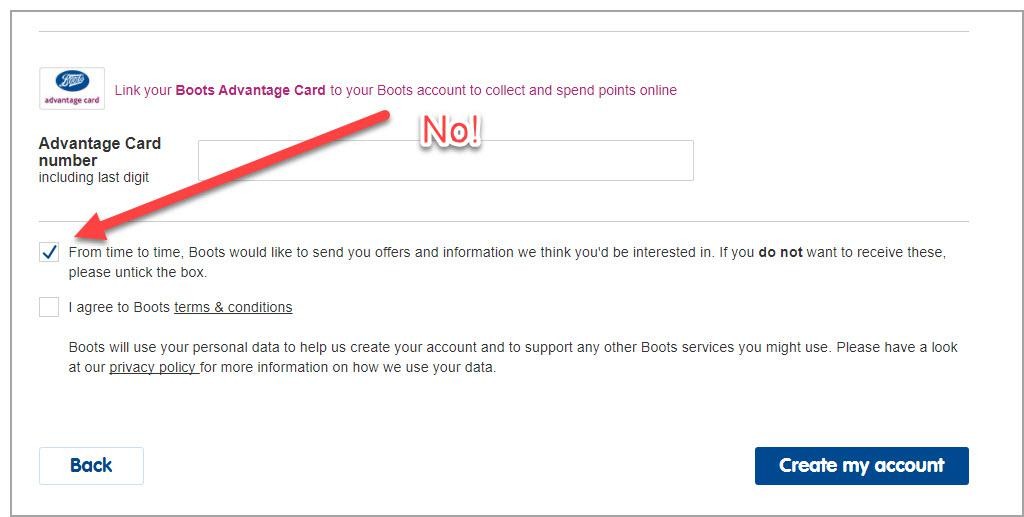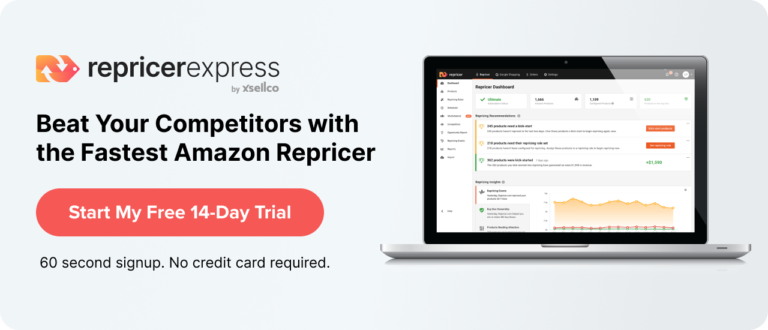Rewind back a few decades, and small brick-and-mortar stores were closing their doors across the United States as Walmart quickly began to establish its empire in the retail industry. Fast forward to the present day, and online stores everywhere are putting up a similar fight against the ecommerce giant known as Amazon.
In regards to coexisting with Amazon, small ecommerce outlets now have two distinct options for selling their products online: join Amazon’s seller network for a monthly fee + commissions or stand on their own in a David versus Goliath situation.
Now, as an entrepreneur, there is a certain degree of pride that comes with conducting business on your own terms and “sticking it to the man.” This is why many would choose the latter when it comes to operating an ecommerce store.
If you choose this route, you are in for a long, treacherous journey to start bringing in revenue. The emphasis on digital strategy will make or break your online store. Here are some key strategies to keep in mind as your arm yourself in the battle against today’s biggest retail giant.
Utilise Platforms with Strategic SEO Benefits
Regardless of whether you operate an ecommerce platform, business website, a blog, or anything else online, a good SEO strategy is one of your best weapons to get your content placed in front of more sets of eyes. In terms of SEO-friendly platforms, you need to choose one that values search engine rankings. For this purpose, Shopify, Magento, WooCommerce, and OpenCart are great options.
The search engines are currently in a massive state of change at the moment. Most prominently, voice search is redefining how people find products on the web. To give you an idea, in the USA and UK, it’s estimated that voice commerce sales will collectively reach $45 billion by 2022.
This means that long-tail keywords are going to play a huge role in how ecommerce sites rank on the SERPs. Remember, most voice searches are phrased as questions. That said, the platform you use needs to favour content and product pages written in a way that answers relevant queries. For instance, if you sell environmentally-friendly outdoor clothing. Your product descriptions would need to consider questions like “What is a good, environmentally-friendly clothing brand for outdoor activities?” or “What are some clothing brands that use sustainable sourcing and manufacturing processes?”
In addition to keywords, there are many factors that influence the SEO of your ecommerce website. This includes the hosting service, on-page factors, link building, and much, much more. Ultimately, SEO is one of the crucial ways to place yourself above competitors on the web.
Make Your Marketing Approach UGC-Heavy
UGC (User-Generated Content) is one of the most interesting phenomena taking place right now. Think about it, nearly everyone was raised learning the concept of “stranger danger” and not trusting people they don’t know. Now, in the age of the internet, random strangers are one of the most trustworthy resources when it comes to choosing products and services. In fact, nearly 90% of people trust online reviews from strangers as much as they would a personal recommendation!
Now, everyone and their cousin knows that incorporating online reviews into an ecommerce store is common knowledge at this point. However, there are plenty of other forms of UGC to include across your entire marketing approach. If you scroll through Instagram for five minutes, chances are, you will see some form of UGC in an online store’s marketing regime. In fact, about half of the top-performing content marketing teams rely extensively on UGC.
Clothing brands are notorious for this. Take Calvin Klein for example. A few years ago, they started their #MyCalvins campaign, in which customers could tag pictures of themselves wearing the products. Celebrities and everyday consumers alike could share their photos on the same feed.

This did a lot to rejuvenate Calvin Klein and add something new to the marketing plan. In the picture above, note how many photos have been shared with this hashtag.
Encouraging UGC in your marketing campaign is a fantastic way to gain relatively free brand exposure from unbiased sources. Fortunately, social media makes this process easy.
For starters, you can create a branded hashtag and promote it through your feeds. To help gain traction, you can try offering promotions or prizes for those who use the tag. In addition to your social pages, you can share this UGC directly on your website.
The reason UGC is so powerful is because it’s essentially a stamp of approval from one everyday consumer to another. Ideally, the person posting this content complimenting your products has no ulterior motives and their sentiment is 100% genuine. With a powerful UGC strategy, you can work to build a loyal following for your ecommerce store and remain in the public eye.
Add in Bonus Sales Features
As you develop your online store, there are all kinds of features and customization opportunities to bring something to the table that Amazon does not. For years, customer service and communication were the biggest drawbacks of buying products online.
However, this perception is slowly starting to change.
This is, of course, thanks to the rise of chatbots. This technology uses a combination of machine learning and natural language processing to give consumers an avenue to communicate with businesses with instantaneous responses around the clock.
As an ecommerce business looking to stand up to Amazon, implementing and programming a chatbot is a golden opportunity to give your platform a degree of customization that cannot be mimicked. Depending on the tool you use, you can incorporate your chatbot on your website and social pages.
Now, developing an effective chatbot is not quite as simple as buying a program and merging it into your website. The goal is to program it in a way that conveys your unique brand personality, helps answer common questions, and guides people down your sales funnel.
Take a look at Fandango’s chatbot:

The brand persona is instantly noticeable and the conversation is geared to encourage people to convert/buy tickets.
On your ecommerce site, a chatbot can be an extremely powerful sales feature that makes life easier for customers. You can even design it to make upsells and cross-sells. In terms of squaring up with Amazon, this feature can be an extremely heavy hitter that improves your overall sales process.
Make it Personal
Now, there’s simply no hiding from the fact that Amazon was a pioneer for personalized online shopping. After logging in, the Amazon homepage is going to look different for everyone in terms of product display. This is based on previous purchases, browsing history, etc. Moreover, Amazon will send you personalized emails with tailored offers and bundles.
According to Marketing Insider Group, nearly 80% of U.S internet users claim that personally relevant content increases their intention to purchase. Plain and simple, if you even want to be considered as a David to the Goliath that is Amazon, you are going to need to add personalization to and beyond your ecommerce store.
Your personalisation requirements will likely vary based on your website, product, industry, and a number of other factors. Being as how your ecommerce store can sell to people all over the world, you are going to need components like a CDN for global speed and functionality, storefronts tailored to specific languages, etc. Do some research and find a personalization tool that fits your exact needs. At a basic level, the capabilities should include personalized website layouts, landing pages, emails, recommendations, and promotions.
Keep in mind, personalization is only possible if you are able to properly gather customer data. That said, you will need to give people a good reason to sign up and fork over their information. In this day and age, people tend to be very sceptical when it comes to giving out their personal info (thanks, Facebook!). The key is to be 100% transparent about how you will use the data to provide better experiences. On a sign-up form, be sure to tell people why they are signing up. Provide a link to your privacy policy that tells them how exactly their data will be used. It must be clear that their information will only be used to make the online experience tailored to their preferences. Lastly, always give them the option to opt out.

Personalisation is practically a necessity in today’s ecommerce landscape. However, the process must be handled very, very carefully. If visitors get the slightest whiff that your tactics are sketchy, they will click the X button and never come back without a second thought.
Your Turn
Running an ecommerce store is an awesome way to bring in passive income 24/7. Fortunately, getting one up and running is easier than ever these days. However, for every high-converting website, there are hundreds of duds. If you want to compete on a similar playing field as Amazon, you are going to need to focus on the factors that make your online store unique, how people find you on the web, and why your shopping experience should keep people coming back.
While these tactics only scratch the surface of what makes an awesome ecommerce store, they will certainly help you gain traction out of the gate!



